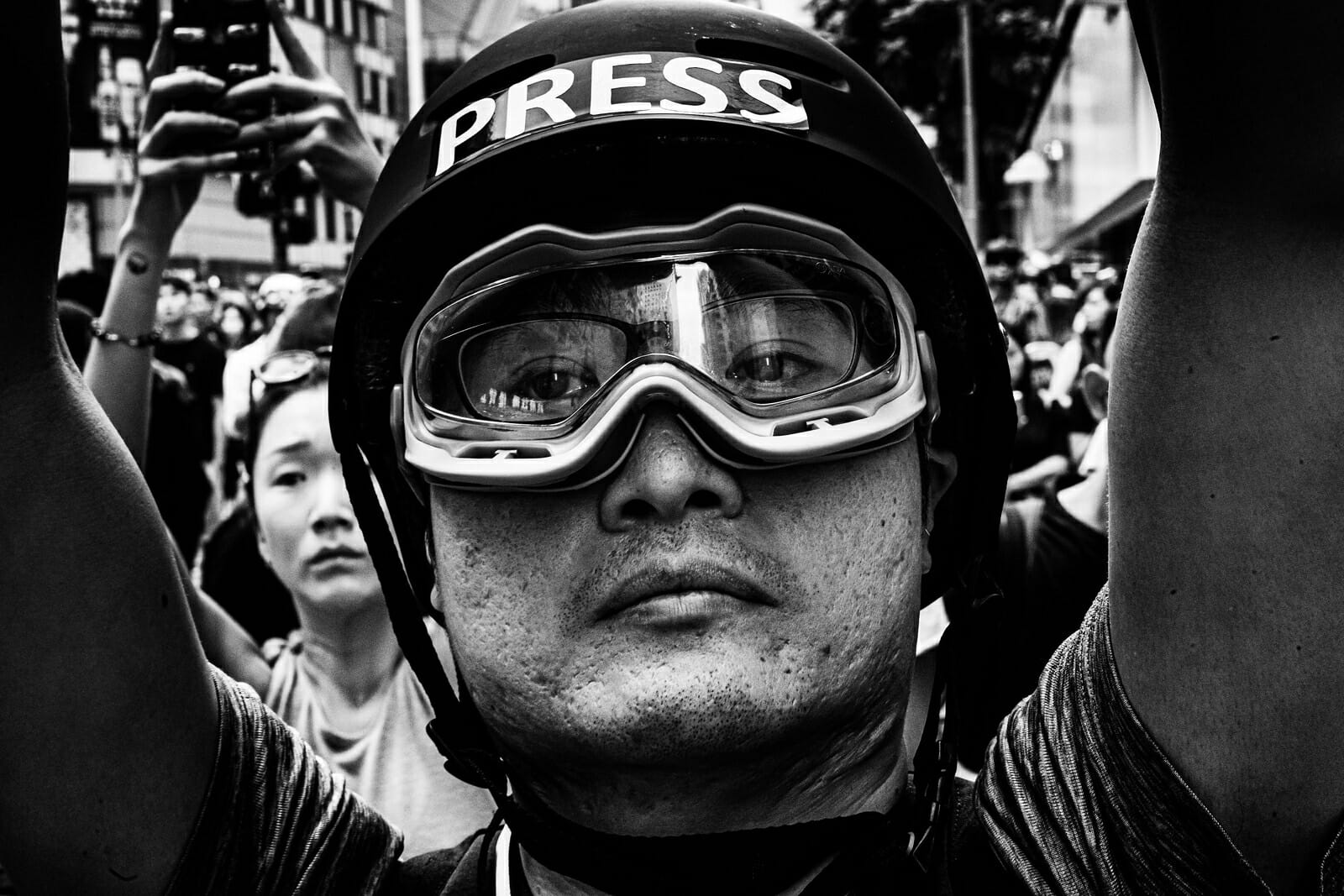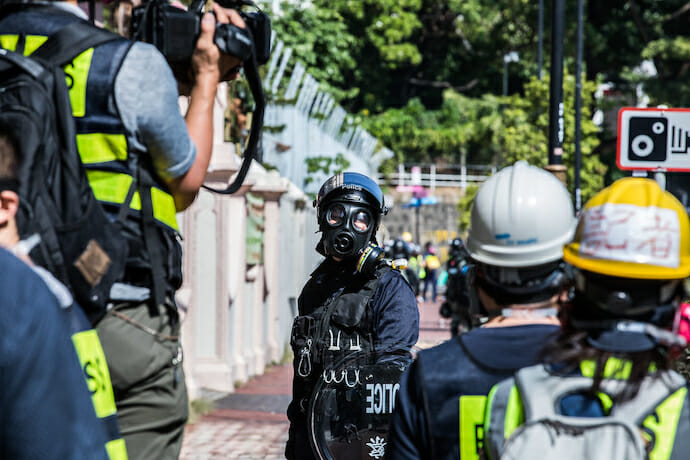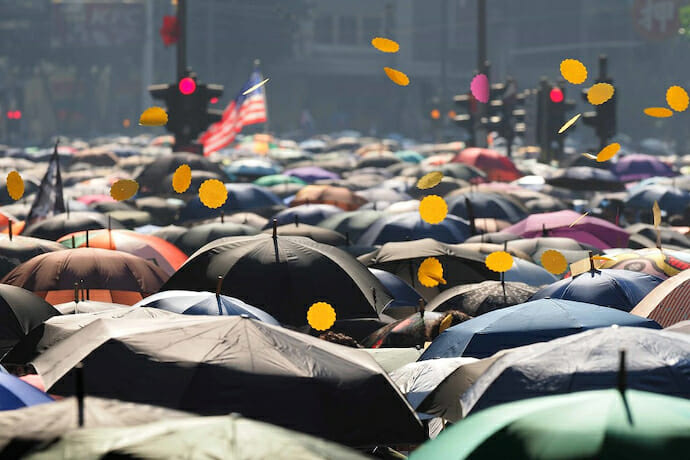
Hong Kong’s Perpetual Agony
“If we burn, you burn with us.” Throughout Hong Kong’s streets, sandwiched between towering skyscrapers and sloping mountains, slogans like these are sprayed. These are dark reminders of the unrest that has afflicted this semi-autonomous territory. Now, with Beijing’s recent passage of a new national security law, a sense of apprehension has returned. It may never go away.
It has been one year since protests first began. Since then, Hong Kong has been transformed from a stable finance center into a city teetering on the brink of anarchy. Peaceful protests against an extradition bill descended into months of violence between police and protestors. Google searches of Hong Kong now return images of burning streets, riot police, and utter chaos.
The new law — which stipulates that acts of secession, subversion, terrorism, and collusion with external forces may be punishable with life in imprisonment — undoubtedly intends to quash the protests. It may go further. These terms are used in China to arrest and detain activists in Xinjiang and Tibet. Being that the law allows Chinese intelligence agencies to set up shop in the territory, there are fears that Hong Kong activists, journalists, and dissidents will also be targeted.
Hong Kong’s notions of freedom are nuanced. The city has never resembled a free state. For the 156 years that Hong Kong was a British colony, residents had no voting rights. Governors were appointed and major policy decisions were made in London. While elections are now held for councilors to the Legislative Council, this body is rigged in favor of Beijing and the city’s business elites. Self-determination has never truly existed.

And yet, paradoxically, Hong Kong’s way of life has been characterized by freedom. Businessmen cheer its low taxes and laissez-faire economics. Lawyers champion its independent judiciary. Activists, drawn by freedom of speech and assembly, made the city a base for NGOs protecting marginalized groups.
Hong Kong’s ability to exist as a bubble between external forces is the city’s most alluring quality. As a conduit between East and West, Hong Kong’s way of life blended Confucian tradition seamlessly with Western enterprise. This distinct harmony helped Hong Kong become one of the world’s premier financial hubs. Banks and multinational firms seeking access to China’s vast market have long based themselves in the city. Hong Kong’s role and contradiction has thus been its place in the middle — a haven between different systems.
The past year was a grueling stress test of this experiment. China’s increasing assertiveness drove almost 2 million Hong Kongers out in the streets in defiance. The government’s refusal to budge on the movement’s demands undoubtedly fueled resentment. Similarly, a brutal police crackdown drove many more out in anger. No surprise then that streets turned into battlegrounds of flames, tear gas, and umbrellas.
Many have tried to make sense of this. Some see noble acts of defiance against a rising superpower. Some pin the escalation on police brutality and incompetent governance. Some suggest the crisis stems from a widening wealth gap. Others blame the violence on radicals hellbent on destruction. They may all be right. Regardless, what has pervaded is a sense of loss for all. The tragedy is that Hong Kong’s heart has been ripped apart, and its society may never recover.
Unrest has its toll. Talk of politics has split couples, families, and friends. Public disagreements on these issues have resulted in brick throwing, firebombing, and even the horrifying immolation of a man. Nearly 2 million adults, or one in three Hong Kongers, reported symptoms of PTSD during the unrest, according to a study published by The Lancet, a medical journal. One in 10 also reported symptoms of depression. Up to 88 percent of residents have been exposed to tear gas.

While the pandemic, and the resulting lockdown, eased tensions, Beijing quietly used this period to assert control. First, it dismantled decades of legal precedent by declaring it had full authority to interfere in Hong Kong’s affairs. Then, Hong Kong police arrested leading pro-democracy activists for their roles in the protests. Next, it pushed through laws banning residents from insulting China’s national anthem. As mentioned earlier, this culminated in China’s parliament imposing a dreaded national security law on the territory, circumventing Hong Kong’s autonomous legislature.
It is the beginning of a new era. While Article 23 of Hong Kong’s mini-constitution stipulates the need for a law to safeguard national security, its legislature could never pass one because it was so unpopular. The bill’s passage through China’s parliament in Beijing, without consent of Hong Kong residents, is emblematic of fears of eroding autonomy. Now, many of Hong Kong’s liberties like freedom of expression, judicial independence and freedom of assembly could be subject to terms dictated by Beijing. The Hong Kong government, once the city’s buffer from China’s rigid authoritarianism, will now be legally obliged to suppress dissent on their whim.
The short-term consequence of the law will likely spell the end of the protest movement and the unrest it has wrought. Many residents, especially those tied to the city’s business interests, will be relieved. Given how insulated Hong Kong has been from China’s iron fist, the long-term consequences of the law are more complicated to foresee.
This is the problem.
Economists speculate the bill will erode the city’s status as an international finance hub. Multinational firms and banks, enticed by Hong Kong’s sophisticated financial plumbing and rule-of-law, rely on it as a base for their Asia-Pacific operations. If China is perceived to be tightening its grip, many may relocate to other hubs like Singapore.
Such fears are overblown. Hong Kong’s attraction to businesses is tied to its proximity to China’s accelerating economy. Given China’s continued growth, Hong Kong’s cosmopolitan place at the heart of it will not change. Many don’t care. What residents fear more is that their way of life will be altered forever.
If Samuel Huntington needed a case study for a clash of civilizations, he should look no further than Hong Kong. Once a safe haven from conflicting ideologies, Hong Kong is being forced to align itself to one, against the will of many of its residents. While Hong Kong’s absorption into China is enshrined in the Sino-British handover agreement, the speed at which this has occurred has been shocking. Last year’s violence illustrated this.
Over the coming decade, this absorption will accelerate further. The uncertainty of how this affects Hong Kong society means that the agony will only continue. Although Hong Kong will not die anytime soon, its place as a paradoxical conduit, hovering between two different worlds, has been forever tilted towards one. For many, that inevitability — and the period of adjustment that follows — will be enough to tarnish the sanguine image of their home.
